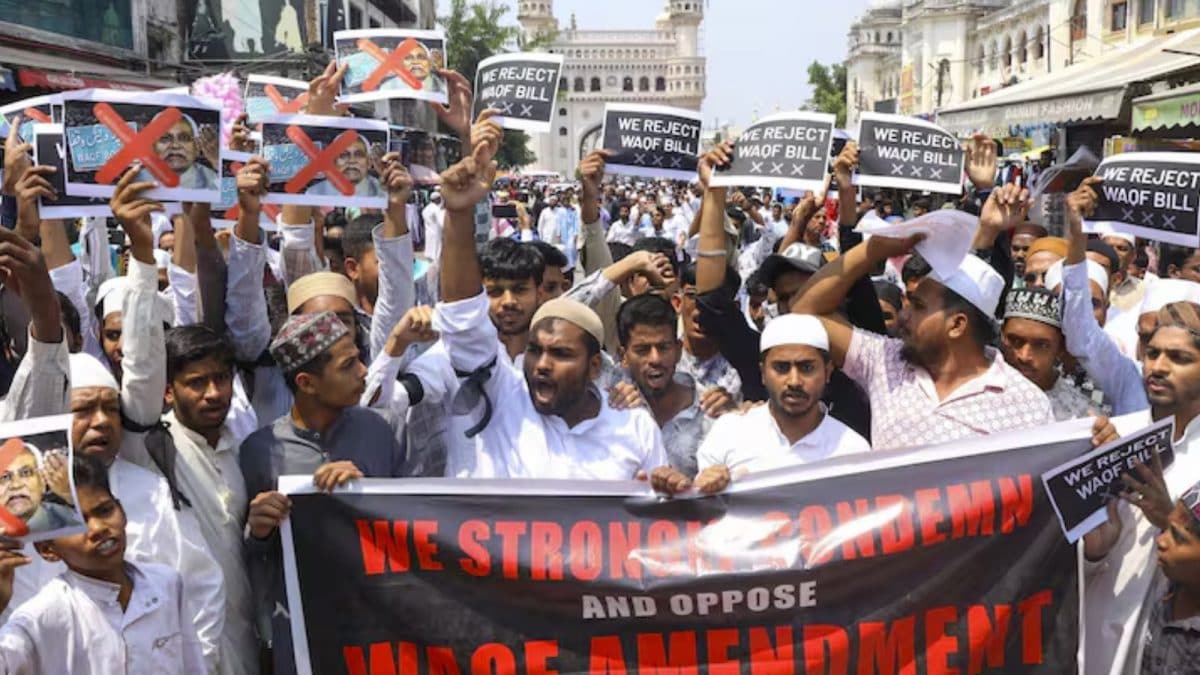Last Updated:
The ruling will come after the court reserved its order on May 22, following three consecutive days of arguments from both the petitioners and the Centre

Protest rally organised against the Waqf Act in Kolkata. (PTI File)
Waqf Act: The Supreme Court is set to pronounce its interim order on Monday in a batch of petitions contesting the Waqf (Amendment) Act, 2025, a law that expands state authority over waqf properties.
The ruling comes after the court reserved its order on May 22, following three consecutive days of arguments from both the petitioners and the Centre.
Recommended Stories
“We have seen the law since the Mussalman Waqf Act of 1923. Technically, the 1923 law did not have a provision for registration, but information about the Waqf had to be provided,” the bench had observed.
“From the Waqf Act, 1954, registration was required. There was a report of 1976 which revealed why registration was necessary. From 1923 till 2025, for over 100 years, the scheme of various enactments had emphasised registration,” it added.
A bench headed by Chief Justice of India BR Gavai heard the matter, with Solicitor General Tushar Mehta defending the Act on behalf of the government. At the same time, senior advocate Kapil Sibal represented the petitioners.
Enforced on April 8 after receiving presidential assent, the amended law has been contentious for its far-reaching implications.
It notably does away with the “waqf by user” clause, under which a property could be recognised as waqf if it had been used for religious or charitable purposes over a long period, even without formal documentation.
At the core of the legal challenge are three key provisions of the law:
Denotification of Properties: Whether properties already declared as waqf under previous legislation can now be denotified under the amended Act.
Composition of Waqf Boards: Petitioners argue that the new structure of state waqf boards and the Central Waqf Council improperly allows non-Muslim members, when they contend such bodies should be run solely by Muslims except for ex officio positions.
Collector’s Inquiry Clause: A provision stating that a waqf property will not be treated as such if a district collector’s inquiry finds it to be government land.
The Waqf (Amendment) Act, 2025 was passed in Parliament with 288 votes in favour and 232 against in the Lok Sabha, and 128 in favour and 95 against in the Rajya Sabha.
Its passage triggered widespread protests in West Bengal and other states, reflecting the sharp political and community divisions surrounding the law.
Centre’s Arguments
The Centre has strongly defended the Act, stressing that waqf is a “secular concept” and that the law enjoys a presumption of constitutionality since it was duly passed by Parliament.
It has opposed calls for a blanket stay on its implementation.
Petitioners, however, describe the law as a “radical departure from established legal and constitutional principles.”
Kapil Sibal argued that the amendments effectively enable the government to “capture waqf through a non-judicial process.”
The Ministry of Minority Affairs, in an affidavit filed on April 25, reiterated its position that Parliament’s will should not be stayed without compelling justification.
About the Author

Ronit Singh, Senior Sub-Editor at News18.com, works with the India and Breaking News team. He has a keen focus on Indian politics and aims to cover unexplored angles. Ronit is an alumnus of Christ (Deemed to be…Read More
Ronit Singh, Senior Sub-Editor at News18.com, works with the India and Breaking News team. He has a keen focus on Indian politics and aims to cover unexplored angles. Ronit is an alumnus of Christ (Deemed to be… Read More
September 15, 2025, 08:28 IST
Loading comments…
Read More



